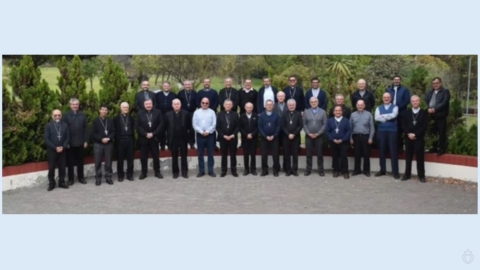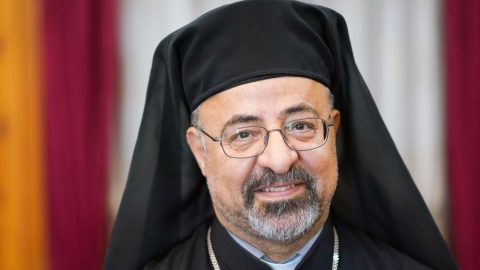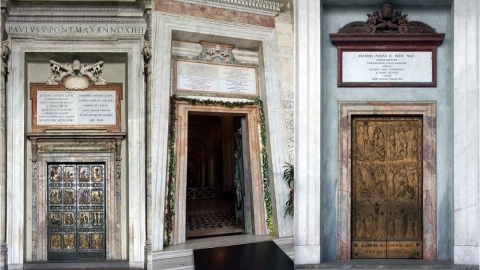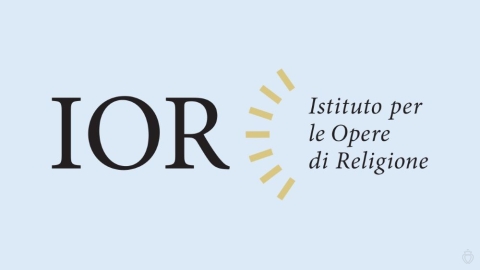Pope Francis Makes a Major Reform of Canon Law
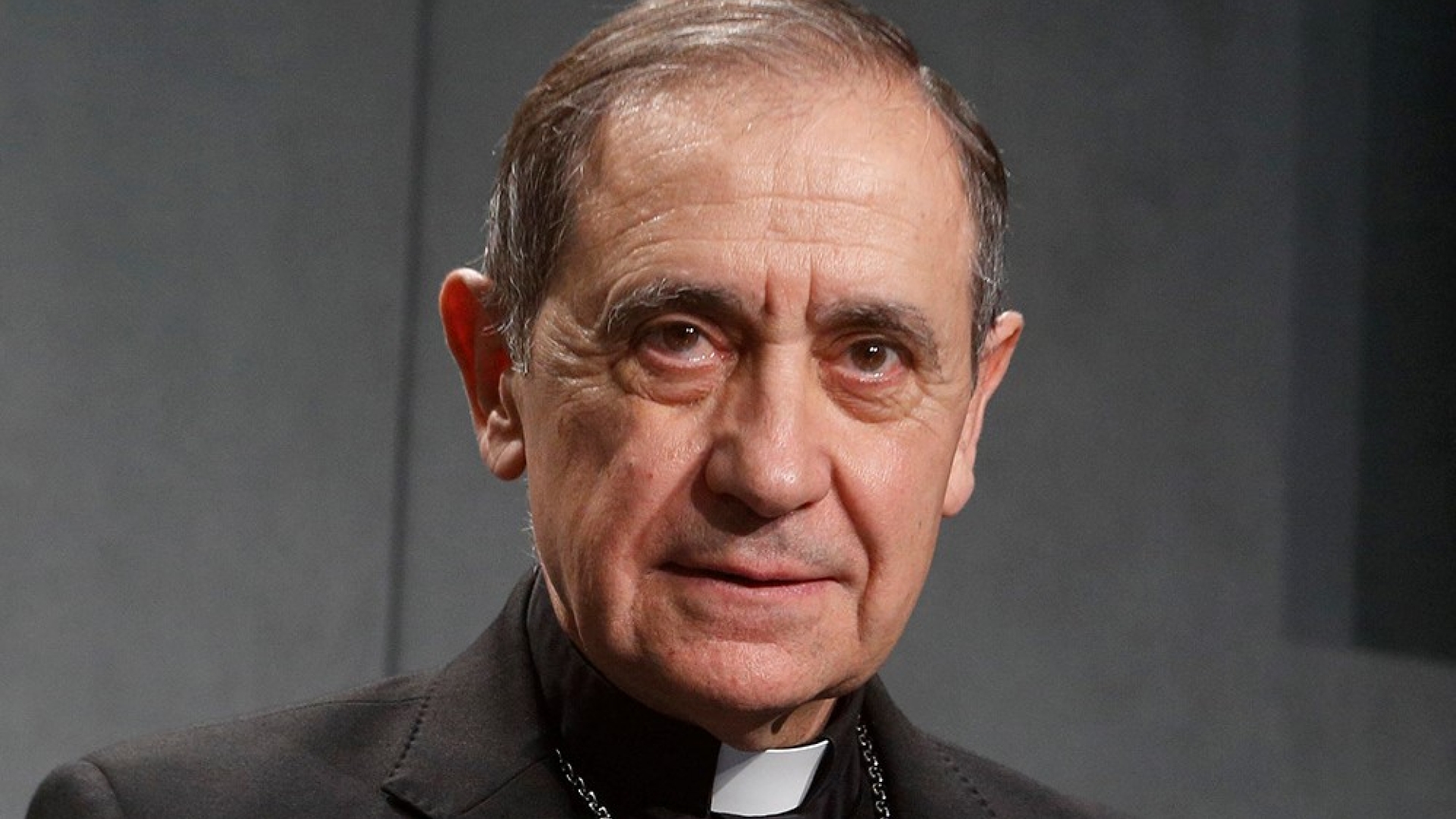
Mgr Juan Ignacio Arrieta
By signing the apostolic constitution Pascite gregem Dei - “Tend the flock of God” - on May 23, 2021, Pope Francis has promulgated an important revision of canon law.
The scope of the reforms is considerable: it consists of an almost complete overhaul of Book VI, which is entitled “Penal Sanctions in the Church.”
It should be remembered that the 1983 Code of Canon Law is divided into seven books of unequal scope. Book VI, which sets forth the criminal law of the Church, in fact contains only 89 canons out of the 1,752 that make up the Code.
But of these 89 canons, 63 have been modified, that is, 71% of the book. 9 others have been moved while 17 remain unchanged. The revised Book VI will enter into force on December 8, 2021, a deadline allowing the necessary translations and adaptations.
But the importance of the reform lies primarily in the formidable admission of the errors contained in the 1983 Code.
It is extremely interesting to follow the explanations given by Msgr. Juan Ignacio Arrieta, secretary of the Pontifical Council for Legislative Texts in an interview with Vatican News following the publication of the apostolic constitution Pascite gregem Dei, on June 1st. It clearly explains the genesis of this reform.
“After the promulgation of the Code in 1983, the limits of Book VI on criminal law appeared.” What kind of limits were involved?
“Following the idea of decentralization, the drafting of penal norms was then left very indeterminate. It was believed that the bishops and superiors would be able to decide according to the gravity of the circumstances which offenses to punish, and how to punish them.”
Thus, in order to “decentralize” on the one hand and to adapt the sanctions in a more “personal” manner, a blur may have been created in the drafting of penal norms. “The difficulty for many to combine charity and punishment meant that the criminal law was hardly applied.”
This was forgetting that this application is the responsibility of judges who weigh the circumstances and to whom it is incumbent to make this discernment for which they have been specially trained, a discernment that was now required of all superiors.
Msgr. Arrieta continues: “In addition, it was difficult to understand that the bishops would react differently in similar situations.”
“This situation has forced the Holy See to intervene, as we know, by entrusting the most serious offenses exclusively to the Congregation for the Doctrine of the Faith, and by granting powers of intervention to other dicasteries of the Curia.”
There is a remarkable text by Benedict XVI, published on April 11, 2019 in the review Klerusblatt, that explains the reasons for this intervention. The Pope Emeritus gives, in a completely new way, the underlying reasons for the crisis of abuse, and makes several admissions regarding the post-conciliar disarray. Here is the passage concerning canon law, with our comments. (Read Benedict XVI Ends His Silence for further commentary.)
Benedict XVI directly addresses the question of the abuses and the insufficiency of the means of repression provided by the new Code of Canon Law.
“The question of pedophilia...did not become acute until the second half of the 1980s.” The bishops of the United States, where the problem had become public, “sought help, since canon law, as it is written in the new (1983) Code, did not seem sufficient for taking the necessary measures...Only slowly, a renewal and deepening of the deliberately loosely constructed criminal law of the new Code began to take shape.”
At the source of this deliberately intended weakness “there was a fundamental problem in the perception of criminal law. Only so-called guarantorism, [a kind of procedural protectionism], was still regarded as ‘Conciliar.’ This means that above all the rights of the accused had to be guaranteed, to an extent that factually excluded any conviction at all...[The] right to defense by way of guarantorism was extended to such an extent that convictions were hardly possible.”
The pope emeritus justifies his action by explaining the course that was taken: “A balanced Canon Law...must therefore not only provide a guarantee for the accused...It must also protect the Faith...In the general awareness of the law, the Faith no longer appears to have the rank of a good requiring protection.”
Because of this, it was necessary to get around the difficulty by transferring the competencies of the Congregation of the Clergy, which is normally responsible for dealing with crimes committed by priests, to the Congregation for the Doctrine of the Faith under the heading of “major delicts [legal offenses] against the faith.” “This arrangement...made it possible to impose the maximum penalty, i.e., expulsion from the clergy, which could not have been imposed under other legal provisions.” In order to protect the Faith, it was necessary to set up a genuine penal procedure, with the possibility of appealing to Rome.
Thus the implacable logic of personalism, which puts the individual before society and the common good, made the justice of the Church almost inoperative with the 1983 Code of Canon Law.
Msgr. Arrieta explains: “The new criteria can be summarized under three [aspects]. First of all, a better determination of standards, by clearly defining the cases in which the penal system should be applied and the way in which offenses should be punished.” As any valid and coherent legal system must do.
The bishop adds: “The reference parameters are also now set to guide the action of the ordinaries, while respecting the margins necessary for the assessment of the concrete circumstances of each case.” As any good judge should do.
“The second criterion is the protection of the community, by establishing the means to prevent and repair scandals, and to repair the damage caused.” It took the terrible crisis of abuse, not to mention the financial scandals, to remember basic principles of social and political philosophy.
“The third objective was to endow the authority - the bishop, the superior - with adequate instruments to be able to prevent violations, promote reform, and correct offenses before they become more serious.”
(Sources : cath.ch/Saint-Siège/FSSPX.Actualités/Vatican news/zenit.org - FSSPX.Actualités)
